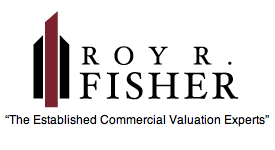 Estate planning is never much fun, but it’s necessary to plan how to leave behind an inheritance for heirs and to reduce or even eliminate the tax burden on an estate. If you own commercial real estate, hiring an appraiser who specializes in this type of property is a crucial part of estate planning.
Estate planning is never much fun, but it’s necessary to plan how to leave behind an inheritance for heirs and to reduce or even eliminate the tax burden on an estate. If you own commercial real estate, hiring an appraiser who specializes in this type of property is a crucial part of estate planning.
In this part of the country, we do a lot of estate planning appraisals for farms, but we can handle most any multi-family, industrial, office, or retail property. We work in both Illinois and Iowa, which have different laws and tax implications for estate planning. When estate planning isn’t handled properly, it often results in excessive legal fees, increased tax liabilities, and potential legal fights among heirs. Planning helps eliminate these sorts of problems before they occur.
Commercial real estate presents unique opportunities and challenges. One of the biggest considerations for estate planning is reducing tax liabilities, which is a huge concern, especially for owners of commercial properties. It’s important to enlist the help of experts like us, as planning can become complicated. A commercial real estate specialist can help plan for dividing property among heirs. We can also help appraise properties with multiple owners.
Roy R. Fisher is experienced in valuing real estate of all types of commercial properties, whether you own an arcade, a welding shop, or a restaurant. Our appraisals can help you make choices about changes needed now to make the estate transition run smoothly in the future.


